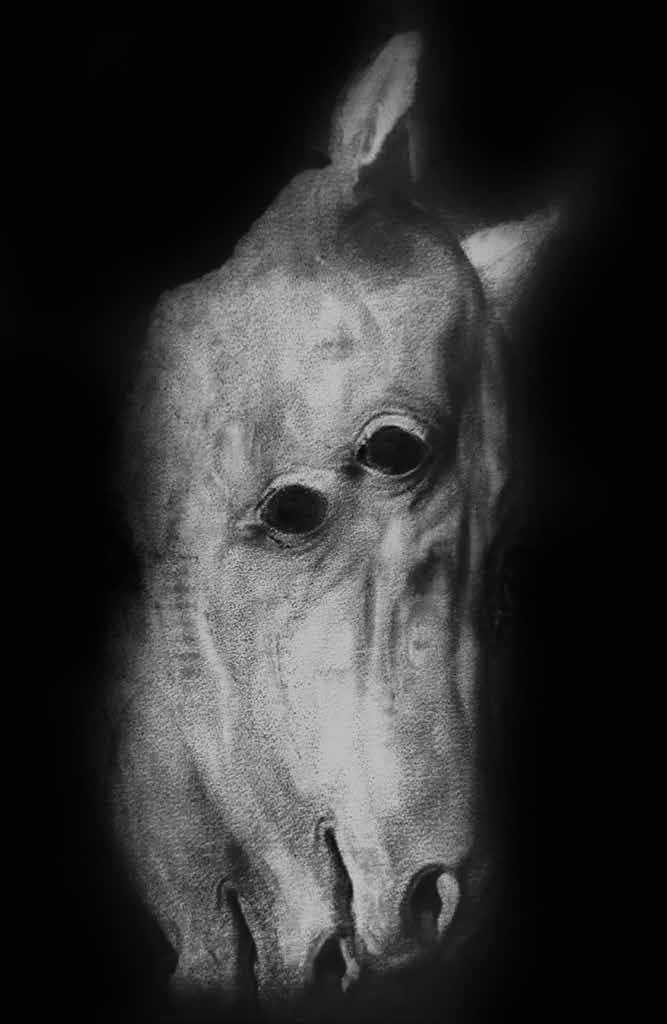Jąkający się świat
Die Welt des Stotterns
The World of Stuttering
Artysta | Künstler | artist: Mika Karhu (1969)
miejsce | Ort | place: Magistrale Kunsthalle, Karl-Marx-Straße 13, Frankfurt (Oder)
Francuski filozof Gilles Deleuze (1925–1995) zastanawiał się, co trzyma wszystko razem. Ideę tę można uprościć następująco: jakiego rodzaju struktury w kapitalistycznej kulturze społecznej umożliwiają funkcjonalną ciągłość pomimo ich sprzeczności? A może zmiana w totalitarną formę społeczeństwa jest bliższa, niż nam się wydaje? Poeta Paul Celan (1920–1970) w swojej twórczości zajmował się okresem po upadku cywilizacji europejskiej spowodowanym II wojną światową. W swoim wierszu nazwał go jąkającym się światem. Nazwa ta wyrażała niezdolność do stawienia czoła ludzkim i kulturowym katastrofom spowodowanym przez totalitaryzm – ponieważ nie było odpowiednich słów. Czasy jąkającego się świata wymagały ekspresji, ale gdzie można było znaleźć język odpowiedni do tego celu? Gdzie znaleźć język, który nie dziedziczyłby i nie przekazywał starych wartości, nie wzmacniał pustej estetyki, nie był fałszywie koncyliacyjny, popularny i wymazujący totalitarną przeszłość?
Der französische Philosoph Gilles Deleuze (1925–1995) hat darüber nachgedacht, was das Ganze zusammenhält. Vereinfacht könnte man sagen: Welche Strukturen der kapitalistischen Gesellschaftskultur ermöglichen trotz ihrer Widersprüche eine funktionale Kontinuität? Oder ist der Übergang zu einer totalitären Gesellschaftsform näher, als wir denken? Der Dichter Paul Celan (1920–1970) beschäftigte sich in seinen Gedichten mit der Zeit nach dem Zusammenbruch der europäischen Zivilisation durch den Zweiten Weltkrieg. In seinem Gedicht nannte er sie Die Welt des Stotterns. Dieser Name drückte die Unfähigkeit aus, die durch den Totalitarismus verursachten menschlichen und kulturellen Katastrophen zu bewältigen – weil es keine angemessenen Worte gab. Die Zeiten der stotternden Welt verlangten nach Ausdruck, aber wo konnte man eine Sprache finden, die gut genug für diesen Zweck war? Wo konnte man die Sprache finden, die nicht alte Werte übernahm oder vermittelte und nicht eine leer gewordene Ästhetik verstärkte, die nicht falsch versöhnlich, populär und vergesslich gegenüber der totalitären Vergangenheit war?
The French philosopher Gilles Deleuze (1925–1995) pondered what holds it all together. The idea could be simplified as follows: what kind of structures in capitalist social culture enable functional continuity despite their contradictions? Or is the change to a totalitarian form of society closer than we think? In his poetry, the poet Paul Celan (1920– 1970) dealt with the period after the collapse of the European civilization caused by the Second World War. In his poem, he called it The World of Stuttering. This name expressed the inability to face the human and cultural disasters caused by totalitarianism—because there were no adequate words. The times of the stuttering world demanded expression, but where could one find a language good enough for that purpose? Where could one find the language which did not inherit or convey old values and did not reinforce aesthetics that had become empty, which was not falsely conciliatory, popular and forgetful of the totalitarian past?
